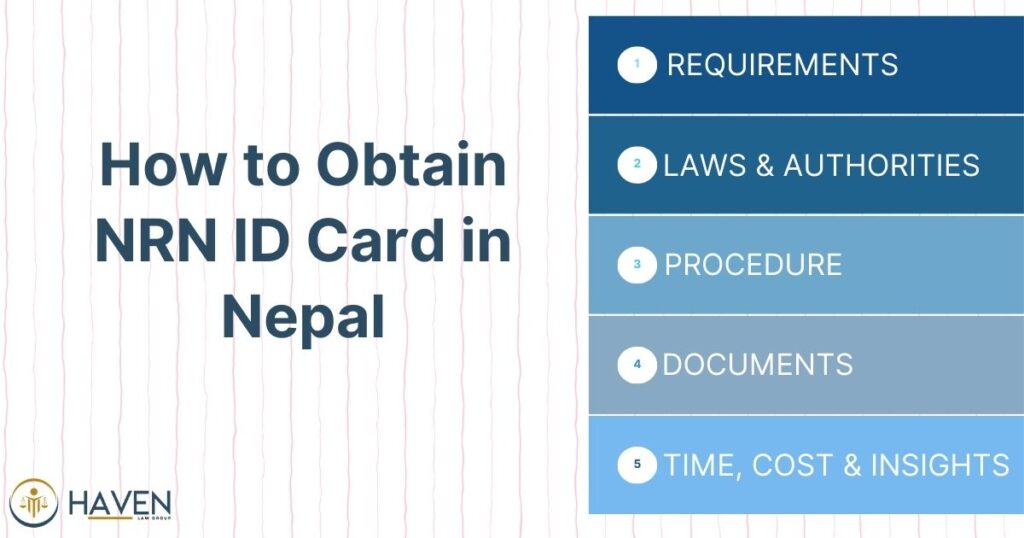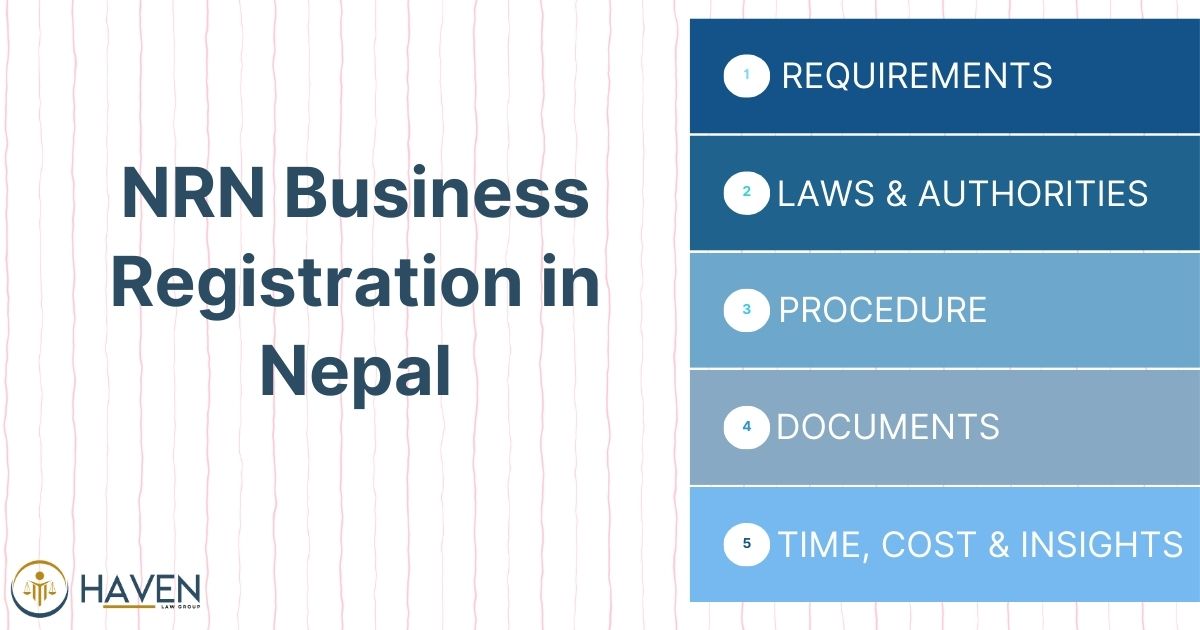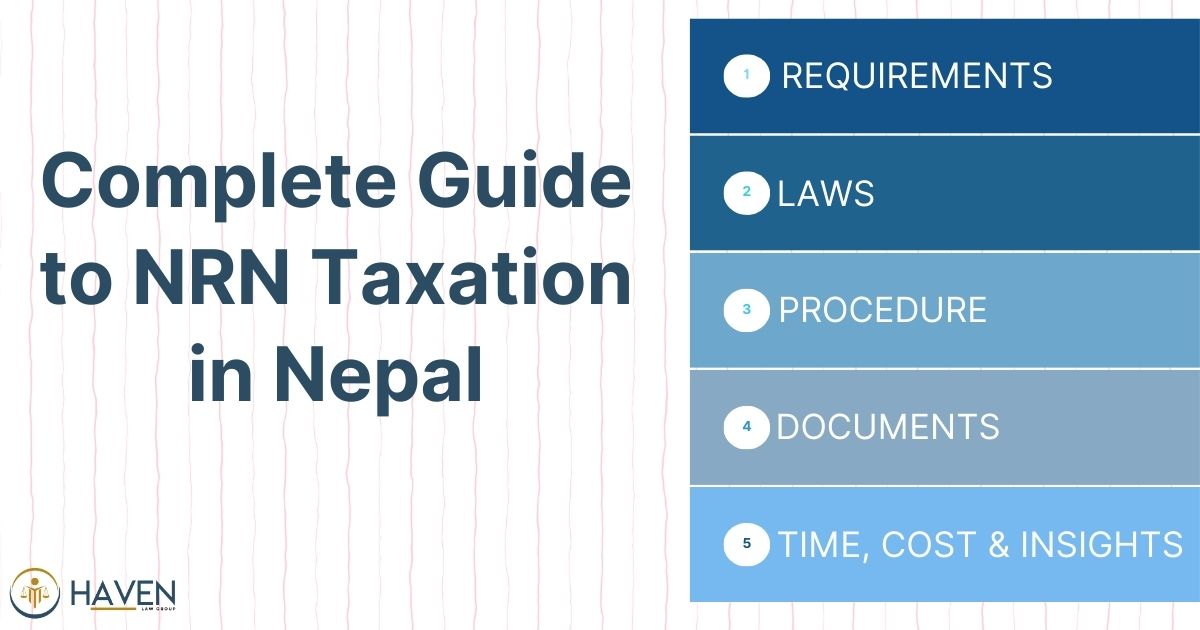What is an NRN ID card in Nepal?
The Non-Resident Nepali (NRN) ID card is an official document issued by the Government of Nepal to Nepali citizens residing abroad or those of Nepali origin who have acquired foreign citizenship. This card serves as a recognition of their connection to Nepal and provides certain privileges within the country.
The NRN ID card is governed by the Non-Resident Nepali Act, 2064 (2008) and its subsequent regulations. It allows NRNs to maintain their ties with Nepal, participate in economic activities, and enjoy specific rights while in the country. The card facilitates easier access to various services and investments in Nepal, promoting engagement between NRNs and their homeland.
Who is eligible for the NRN ID card?
Eligibility for the NRN ID card is determined by specific criteria set forth in the Non-Resident Nepali Act, 2064 (2008). The following individuals are eligible to apply for an NRN ID card:
- Nepali citizens residing in foreign countries, excluding South Asian Association for Regional Cooperation (SAARC) member states
- Former Nepali citizens who have acquired citizenship of foreign countries, excluding SAARC member states
- Individuals of Nepali origin who have acquired foreign citizenship, excluding citizenship of SAARC member states
It’s important to note that individuals holding citizenship of SAARC countries (Afghanistan, Bangladesh, Bhutan, India, Maldives, Pakistan, and Sri Lanka) are not eligible for the NRN ID card. The eligibility criteria aim to encompass Nepali diaspora members who have maintained their connection to Nepal while residing or obtaining citizenship in non-SAARC countries.
What documents are needed for an NRN ID card?
To apply for an NRN ID card, applicants must submit several documents to prove their eligibility and identity. The required documents include:
- Completed NRN ID card application form
- Two recent passport-sized photographs
- Copy of valid passport
- Proof of current foreign residence or citizenship (e.g., residence permit, foreign citizenship certificate)
- Copy of Nepali citizenship certificate (if applicable)
- Evidence of Nepali origin (for those who have acquired foreign citizenship)
- Marriage certificate (if applying based on spouse’s eligibility)
- Birth certificate (for minors)
- Proof of relationship with NRN cardholder (for family members)
- Any additional documents required by the Non-Resident Nepali Association (NRNA) or Nepali embassy/consulate
Applicants should ensure all documents are properly authenticated and translated into English or Nepali if originally in another language. The specific requirements may vary slightly depending on the applicant’s circumstances and the issuing authority’s guidelines.
How to apply for the NRN ID card?
The process of applying for an NRN ID card involves several steps:
- Obtain the application form from the nearest Nepali embassy, consulate, or the Non-Resident Nepali Association (NRNA) website
- Fill out the application form completely and accurately
- Gather all required documents as specified in the application guidelines
- Submit the completed application form along with all necessary documents to the nearest Nepali embassy, consulate, or designated NRNA office
- Pay the required application fee
- Attend an interview or provide additional information if requested by the issuing authority
- Wait for the application to be processed and approved
- Collect the NRN ID card from the issuing authority once notified of its availability
Applicants should follow the instructions provided by the specific embassy, consulate, or NRNA office handling their application, as procedures may vary slightly depending on the location and current regulations.
Are there fees for obtaining an NRN ID card?
Yes, there are fees associated with obtaining an NRN ID card. The fee structure is set by the Government of Nepal and may be subject to change. As of the latest available information, the fees for NRN ID cards are as follows:
- For a 10-year validity card: USD 100 or equivalent in local currency
- For a 5-year validity card: USD 50 or equivalent in local currency
These fees are typically payable at the time of application submission. Additional charges may apply for expedited processing or other special services. It’s advisable to check with the specific Nepali embassy, consulate, or NRNA office handling the application for the most up-to-date fee information and accepted payment methods.
Can the NRN ID card be used as proof of identity?
The NRN ID card serves as a valid form of identification for Non-Resident Nepalis within Nepal. It can be used as proof of identity for various purposes, including:
- Opening bank accounts in Nepal
- Conducting financial transactions
- Accessing government services
- Registering businesses or investments
- Purchasing property (subject to applicable laws)
However, it’s important to note that the NRN ID card does not replace a passport or other official travel documents. While it provides certain privileges within Nepal, it is not a substitute for a valid passport when entering or exiting the country. The card’s primary purpose is to facilitate NRNs’ engagement with Nepal and streamline their access to services and investments in the country.
How long is the NRN ID card valid?
The validity period of an NRN ID card depends on the type of card issued:
- 10-year validity card: This card is issued to individuals who have acquired foreign citizenship and is valid for a period of 10 years from the date of issuance.
- 5-year validity card: This card is issued to Nepali citizens residing abroad and is valid for a period of 5 years from the date of issuance.
The validity period is clearly indicated on the card itself. It’s important for cardholders to keep track of their card’s expiration date and initiate the renewal process well in advance to ensure continuous access to the benefits provided by the NRN ID card.
Can the NRN ID card be renewed?
Yes, the NRN ID card can be renewed upon expiration. The renewal process is similar to the initial application process and typically involves the following steps:
- Submit a renewal application form to the nearest Nepali embassy, consulate, or designated NRNA office
- Provide updated documents, including a valid passport and proof of current foreign residence or citizenship
- Pay the renewal fee, which is usually the same as the initial application fee
- Submit any additional documents or information requested by the issuing authority
Cardholders should initiate the renewal process well before their current card expires to avoid any lapse in their NRN status. It’s advisable to check with the specific embassy, consulate, or NRNA office for the most up-to-date renewal requirements and procedures.
Is physical presence required to get the ID card?
In most cases, physical presence is required to obtain an NRN ID card. This requirement serves several purposes:
- Verification of identity and documents
- Biometric data collection (if applicable)
- Signature verification
- Interview process (if required)
However, some Nepali embassies or consulates may offer alternative arrangements for applicants who face difficulties in appearing in person. These may include:
- Designated representatives submitting applications on behalf of applicants
- Video conferencing for identity verification
- Mobile application centers in remote locations
Applicants should contact their nearest Nepali embassy, consulate, or NRNA office to inquire about specific requirements and any possible accommodations for those unable to appear in person.
Are NRN ID cards available for family members?
Yes, NRN ID cards are available for eligible family members of Non-Resident Nepalis. Family members who may qualify for an NRN ID card include:
- Spouse of an NRN cardholder
- Children of an NRN cardholder (under 18 years of age)
- Parents of an NRN cardholder (in some cases)
To obtain an NRN ID card for family members, the following steps are typically required:
- The primary NRN cardholder must first obtain their own NRN ID card
- Family members must meet the eligibility criteria set forth in the Non-Resident Nepali Act and regulations
- Appropriate documentation proving the relationship with the primary NRN cardholder must be provided
- A separate application form must be submitted for each family member
- Required fees must be paid for each family member’s application
It’s important to note that family members’ NRN ID cards are typically linked to the primary cardholder’s status and may have different validity periods or restrictions.
Can NRN ID cards be revoked?
Yes, NRN ID cards can be revoked under certain circumstances. The Government of Nepal, through its authorized agencies, has the power to revoke or cancel an NRN ID card if:
- The cardholder provides false information or documents during the application process
- The cardholder engages in activities deemed harmful to Nepal’s national interests
- The cardholder violates the terms and conditions associated with the NRN ID card
- The cardholder acquires citizenship of a SAARC member state
- The cardholder’s foreign citizenship or residence status changes, making them ineligible for the NRN ID card
- The cardholder is found to be involved in criminal activities
The process of revocation typically involves:
- Investigation by relevant authorities
- Notification to the cardholder
- Opportunity for the cardholder to present their case
- Final decision by the authorized agency
Cardholders whose NRN ID cards are revoked may lose access to the privileges and benefits associated with the card. They may also be required to surrender the card to the nearest Nepali embassy or consulate.
Is the NRN ID card mandatory for property ownership?
The NRN ID card is not mandatory for property ownership in Nepal, but it significantly facilitates the process for Non-Resident Nepalis. According to the Non-Resident Nepali Act, 2064 (2008) and subsequent regulations, NRN ID cardholders enjoy certain privileges regarding property ownership:
- NRN ID cardholders can purchase and own residential property up to a specified limit without requiring special permission
- The card simplifies the process of property registration and transfer
- It provides easier access to banking services related to property transactions
However, it’s important to note that:
- Property ownership is still subject to other applicable laws and regulations in Nepal
- There may be restrictions on the type and amount of property that can be owned
- NRN ID cardholders must comply with all relevant tax obligations related to property ownership
While the NRN ID card is not mandatory, it serves as a valuable tool for Non-Resident Nepalis interested in owning property in Nepal, streamlining various administrative processes and providing a recognized form of identification for such transactions.
FAQs
1. Can applications be online?
Currently, the full application process for NRN ID cards cannot be completed entirely online. While some embassies or consulates may offer online pre-registration or document submission, physical presence is typically required for document verification and biometric data collection. Applicants should check with their nearest Nepali embassy, consulate, or NRNA office for the most up-to-date application procedures.
2. Is renewal time-bound?
Yes, renewal of NRN ID cards is time-bound. Cardholders should initiate the renewal process before their current card expires. While there may not be a strict deadline for renewal after expiration, allowing the card to expire may result in a lapse of NRN status and associated benefits. It’s advisable to begin the renewal process at least 3-6 months before the card’s expiration date.
3. Are fees refundable?
Generally, fees paid for NRN ID card applications or renewals are non-refundable. This policy applies even if the application is rejected or withdrawn. However, in exceptional circumstances, such as administrative errors or unforeseen events, the issuing authority may consider refund requests on a case-by-case basis. Applicants should clarify the refund policy with the specific embassy, consulate, or NRNA office handling their application.
4. Can minors apply?
Yes, minors (individuals under 18 years of age) can apply for NRN ID cards. However, the application process for minors involves additional requirements:
- The application must be submitted by a parent or legal guardian
- A birth certificate or equivalent document must be provided
- Both parents’ consent may be required in some cases
- The card’s validity period may differ from adult cards
Minors’ NRN ID cards are typically linked to their parents’ NRN status and may need to be renewed or reapplied for upon reaching adulthood.
5. Is dual citizenship proof required?
Proof of dual citizenship is not required for obtaining an NRN ID card, as Nepal does not recognize dual citizenship. Instead, applicants who have acquired foreign citizenship must provide:
- Proof of their foreign citizenship (e.g., foreign passport, citizenship certificate)
- Evidence of their Nepali origin or former Nepali citizenship
For Nepali citizens residing abroad, proof of their current foreign residence status is required rather than citizenship proof. The specific documents needed may vary depending on the applicant’s circumstances and the issuing authority’s requirements.
What is an NRN ID Card?
An NRN ID Card is an official document issued to Non-Resident Nepalis, confirming their status and enabling certain privileges in Nepal.
Who is eligible to apply for an NRN ID Card?
Individuals of Nepali origin residing abroad, foreign citizens of Nepali descent, and their spouses are eligible for NRN ID Cards.
What documents are required for the NRN ID card application?
Required documents include passport copies, proof of foreign residency, birth certificate, and photographs. Specific requirements may vary based on individual circumstances.
How do I apply for an NRN ID Card?
Apply online through the official NRN website or visit a Nepali embassy/consulate. Submit required documents and pay the applicable fee.
What is the validity period of the NRN ID Card?
The NRN ID Card is typically valid for 10 years from the date of issuance.
How long does it take to receive the NRN ID Card?
Processing time varies, but generally takes 4-6 weeks after submitting a complete application.
What should I do if my NRN ID Card is lost or damaged?
Report the loss to local authorities and apply for a replacement card through the NRN website or nearest Nepali embassy.
Can I apply for the NRN ID Card while in Nepal?
Yes, applications can be submitted at the Department of Consular Services in Kathmandu while visiting Nepal.
What benefits does the NRN ID Card provide?
Benefits include visa-free entry, property ownership rights, and easier access to certain financial and business opportunities in Nepal.








